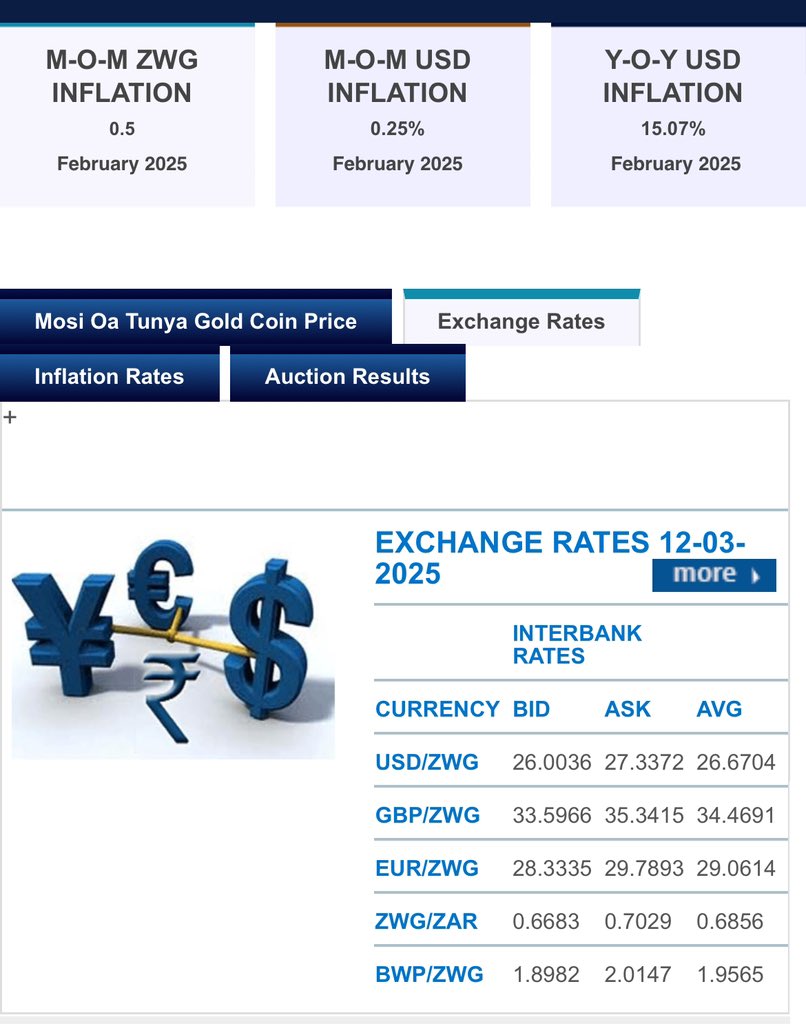1/9
Zimbabwe’s debt trap
The purpose of this thread is to show the extend of Zimbabwe’s external debt.
Is Zim in a debt trap?
Under my calculation Zim’s external debt is at least US$19bn
Zimbabwe’s debt trap
The purpose of this thread is to show the extend of Zimbabwe’s external debt.
Is Zim in a debt trap?
Under my calculation Zim’s external debt is at least US$19bn
3/9
After the coup of Nov 2017, RBZ on behalf of the public started acquiring debt.
There are three components to RBZ debt:
(i) Afreximbank loans of US$1.4bn
(ii) Blocked funds- legacy debts of US$2.8bn*
(iii) other debt US$1.5bn
*MOF number. This grew by 0.8bn in 2021
After the coup of Nov 2017, RBZ on behalf of the public started acquiring debt.
There are three components to RBZ debt:
(i) Afreximbank loans of US$1.4bn
(ii) Blocked funds- legacy debts of US$2.8bn*
(iii) other debt US$1.5bn
*MOF number. This grew by 0.8bn in 2021

4/9
Afreximbank loans and concomitant interest rate of at least 10% per annum. The thread on this is here
Afreximbank loans and concomitant interest rate of at least 10% per annum. The thread on this is here
https://twitter.com/baba_nyenyedzi/status/1361175512413052930
5/9
Total RBZ external debt was US$4.8bn in March 2021. Block funds US$2.2bn. According to the mid term review this has grown to US$2.8bn.
Therefore RBZ debt is at least US$5.4bn
Total RBZ external debt was US$4.8bn in March 2021. Block funds US$2.2bn. According to the mid term review this has grown to US$2.8bn.
Therefore RBZ debt is at least US$5.4bn

6/9
The farmers deed of settlement which is a public debt is US$3.5bn.
It’s salient features are not fully known eg interest rates. There are rumours that if a certain amount is not settled within a given period the debt due becomes US$5bn.
herald.co.zw/president-seal…
The farmers deed of settlement which is a public debt is US$3.5bn.
It’s salient features are not fully known eg interest rates. There are rumours that if a certain amount is not settled within a given period the debt due becomes US$5bn.
herald.co.zw/president-seal…
7/9
Hwange Power station expansion of unit 7 & 8 with increased capacity of 600MW is funded by China at a cost of US$1.5bn.
The salient features are not known.
Hwange Power station expansion of unit 7 & 8 with increased capacity of 600MW is funded by China at a cost of US$1.5bn.
The salient features are not known.

8/9
The Kariba power expansion by Zimbabwe Power company is at a cost of US$500m funded by the Chinese.
The Kariba power expansion by Zimbabwe Power company is at a cost of US$500m funded by the Chinese.

9/9
To recap
(i) MOF US$8.4bn
(ii) RBZ US$5.4bn
(iii) FDS US$3.5bn
(iv) Power US$2bn
Total US$19.3
Excluded are other State Enterprise debts eg Telecos, dam, road, NRZ, local authorities etc
To recap
(i) MOF US$8.4bn
(ii) RBZ US$5.4bn
(iii) FDS US$3.5bn
(iv) Power US$2bn
Total US$19.3
Excluded are other State Enterprise debts eg Telecos, dam, road, NRZ, local authorities etc
• • •
Missing some Tweet in this thread? You can try to
force a refresh











